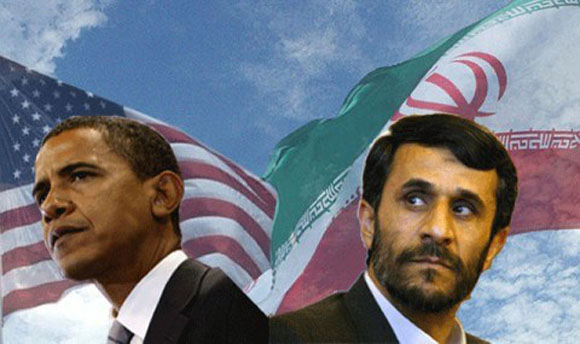Support in Europe for a heightenedPalestinian profile at the United Nations grew on Tuesday when the French government said it would vote in favor of the Palestinians’ bid for nonmember observer status, embracing a move that Israel and the United States have opposed.
The announcement byFrance, a permanent member of theUnited Nations Security Council, is the most significant boost to date for the Palestinians’ hopes to be granted the enhanced status in the world forum, and with that greater international recognition. Russia and China, two other permanent members, have also thrown their weight behind the Palestinian bid.

The announcement byFrance, a permanent member of theUnited Nations Security Council, is the most significant boost to date for the Palestinians’ hopes to be granted the enhanced status in the world forum, and with that greater international recognition. Russia and China, two other permanent members, have also thrown their weight behind the Palestinian bid.

The backing of France and other countries appeared calculated to provide diplomatic ballast to thePalestinian Authority’s president,Mahmoud Abbas, a moderate whose Fatah party governs in parts of the West Bank. The effort came after the militant group Hamas, which controls the Gaza Strip, saw its credibility and standing with Palestinians rise after eight days of fighting with Israel.
But the French announcement was also a blow to Israel, whose diplomats have been working feverishly to try to ensure what they call a “moral majority” in the United Nations vote, meaning that even if a majority of nations voted in favor of the Palestinian bid, the major world powers would not.
The Palestinians said Tuesday that at least 12 European Union countries had confirmed that they were behind the Palestinian bid. With that support widening in Europe, Israeli officials acknowledged that the effort to gain a “moral majority” was crumbling.
Countries in the European Union are “slowly drifting toward support or abstention,” said Yigal Palmor, a spokesman for the Israeli Foreign Ministry.
Foreign Minister Laurent Fabius of France, speaking before the lower house of Parliament on Tuesday, said that on “Thursday or Friday, when the question is asked, France will reply, ‘Yes.’ ”
Though recognition at the United Nations would be viewed by many as an implicit recognition of statehood, the “concrete expression of a Palestinian state” can come only through negotiations “without conditions” between Palestinians and Israel, Mr. Fabius added.
Israeli officials also said they were not surprised by the French announcement. Ilana Stein, a Foreign Ministry spokeswoman, said, “Of course, we remain in our opinion that this is a very harmful initiative by the Palestinians; our opinion has not changed.”
Muhammad Shtayyeh, the Palestinian special envoy for the United Nations bid, issued a statement from New York saying: “We are very thankful to France, and we call upon other European governments to announce their support for Palestinian freedom. This is long overdue.” The two other permanent members of the Security Council are the United States and Britain.
The vote on enhanced status is fraught with symbolism, and some analysts see it staying that way. It will fall on Nov. 29, the 65th anniversary of the United Nations decision to partition the territory of Palestine into Jewish and Arab states.
If approved, it will do nothing to relieve the unresolved issues at the heart of the Palestinian-Israeli disagreements.
“There is one basic reality,” said Robert M. Danin, a senior fellow at the Council on Foreign Relations and a former State Department official. “The Palestinians still control less than half of the West Bank and will control less than half of the West Bank tomorrow and the day after until the Israelis decide otherwise.”
Last year, the Palestinians submitted an application to the Security Council to become a full member state of the United Nations, but the effort went nowhere; the United States made it clear it would veto the request.
The Palestinians still believe that broader recognition of their presence in the United Nations is a crucial step to a two-state solution. The draft resolution for the vote on status “reaffirms the right of the Palestinian people to self-determination and to independence in their state of Palestine on the Palestinian territory occupied since 1967.”
The Israelis are concerned that the Palestinians could use enhanced status to try to join other bodies, like the International Criminal Court, where they could pursue legal claims against Israel. Israeli officials also view the Palestinian bid for enhanced status as a nonmember state as a violation of previous accords.
“This is in stark contrast to their commitment to resolve issues through negotiations,” said Mark Regev, an Israeli government spokesman.
While any vote supporting greater Palestinian status at the United Nations could help Mr. Abbas, a moderate, Mr. Danin said the bid, if voted in, could lead to heightened tension with Israel.
“For the Palestinian Authority and President Abbas it is a symbolic victory that I think he feels he badly needs right now, particularly in the wake of the recent violence in Gaza, but more generally as well,” he said. “Originally he posited this as a tool in a strategy leading to renewed negotiations. In the short term it will have the opposite effect.”
Also on Tuesday, the remains of Yasir Arafat, the longtime Palestinian leader, were exhumed in Ramallah as part of an inquiry into whether he had been poisoned. The atmosphere was subdued, with his people more fractured and less certain of their future than when he was alive.
Meanwhile, responding to unconfirmed reports that Washington and Israel were pressing the Palestinians to include a clause in the resolution pledging not to seek membership in the International Criminal Court, Palestinian officials said they would accept no limits on their statehood.
One Palestinian official denied the reports and said that the American pressure had been directed more generally at getting the Palestinians to drop the whole process. He said that the Palestinians had invited the Americans and the Israelis to be involved in the drafting of the resolution several months ago, but that they refused.
Mr. Regev said only that there were “ongoing talks” between the Americans and the Israelis.
Malta, Luxembourg, Switzerland and Portugal have said they will vote for the measure, while Germany and the Czech Republic are among the countries that have opposed the bid, news agencies reported.












